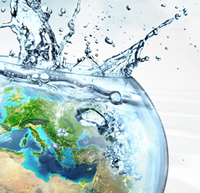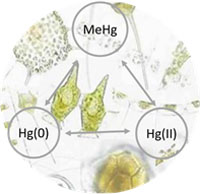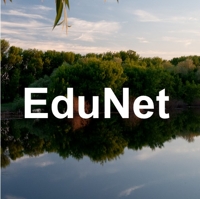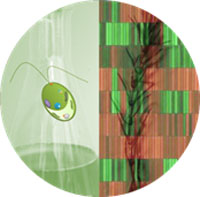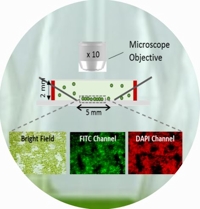Projets terminés
Evaluation of the impact of a mixture of engineered nanoparticles on freshwater phytoplankton
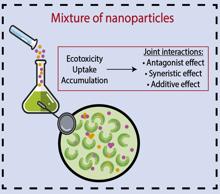
The project explores how freshwater phytoplankton species respond to mixtures of engineered nanoparticles, using cutting-edge single particle and single cell techniques to uncover the nano-bio interactions and harmful effects, as well as their underlying mechanisms.
- Funding: University of Geneva and Swiss National Science Foundation
- UniGe Responsible : Prof. Vera Slaveykova
- Collaborators: Dr. Mariam Bakir Laso
Towards better understanding of the adverse outcome pathways of silver nanoparticles in freshwater gastropods (NANOPATHS)
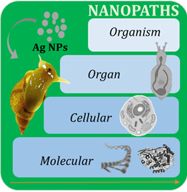
- Funding: Swiss National Science Foundation
- UniGe Responsible : Dr. Wei Liu
- PhD student : Ting Wang
- Partners: Prof. Vera Slaveykova, Dr. Mylène Docquier (Genomic platform iG3), Dr. Isabelle Worms, Dr. Emmanuel Castella.
Green Breath Box : Insights into biogeochemical cycles, environment, and sustainability
- Funding: Swiss National Science Foundation - Programme AGORA
- UniGe Responsible : Prof. Vera Slaveykova
- Collaborators :Prof. Andreas Mueller, Dr Rémy Kopp et M. Philippe Jenni, Dr Giulia Cheloni,
Mme Elodie Moulin et Mme Sarah Fragnière - Contact: Prof. Vera Slaveykova - courriel
Exploring the interaction of mercury species with different diatoms
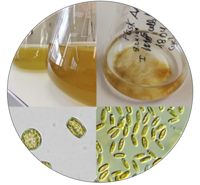
This project aims to attain insights about the role of diatoms (phytoplankton group) in the Hg cycle on freshwater systems. Bioaccumulation, kinetics and prevailing mechanisms of Hg biotic transformation pathways mediated by mainly Cyclotella meneghiniana under different conditions will be determined. Physiological endpoints will also be determined under different mercury concentrations and species to understand how it affects this organism. In parallel, transcriptomic and metabolomic techniques will be applied to explore the affected pathways.
- Funding: University of Geneva and Swiss National Science Foundation
- UniGe Responsible : Prof. Vera Slaveykova
- PhD student : M. João Santos
Formation of HgS nanoparticles in Hg(II) exposed diatom and the involved mechanisms
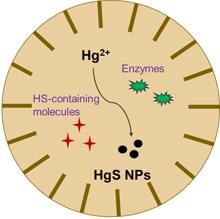
The project aims to investigate whether and how diatoms facilitate the conversion of Hg(II) into HgS nanoparticles (NPs). It will examine the subcellular distribution of HgS NPs, the influence of thiol-containing biomolecules, and the expression of key enzymes in sulfur metabolism to elucidate the underlying mechanisms.
- Funding: China scholarship council
- UniGe Responsible : Prof. Vera Slaveykova
- PhD student : Dr. Xing Zhang
Interaction of nanoparticles with metalloproteins
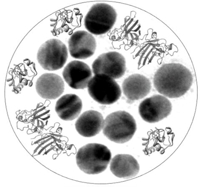
- The project studies the interaction of nanoparticles (AgNPs and AuNPs) with metalloproteins by focusing on the formation of nanoparticles-protein corona (dynamic vs. static), the behaviour of the NPs and the related consequences for the protein in terms of conformation change and its biological function.
- Funding : University of Geneva
- UniGe Responsible : Prof. Vera Slaveykova
- Collaborators : Dr. Wei Liu and Dr. Isabelle Worms
Exploring the role of rhizobacterium Ensifer meliloti on cadmium speciation and cadmium accumulation in rice (Oryza sativa L.)
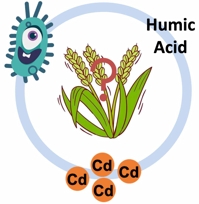
The project explores the role of rhizobacteria, the extracellular polymeric substances and humic substances on the speciation and accumulation of Cd in rice. This project will help us understand how the presence of the rhizobacterium affect the Cd speciation in solution, and further Cd accumulation in rice.
- Funding: China scholarship council.
- UniGe Responsible : Prof. Vera Slaveykova
- Collaborators: Mme Keji Wang
Oxidative stress as a mediator of bacterial resistance development towards antibiotics in the presence of sublethal levels of heavy metals

- Funding: China scholarship council.
- UniGe Responsible : Prof. Vera Slaveykova
- Collaborators: Dr. Wei Liu, Dr. Yan Xu
This project aims to obtain new insights into the role of phytoplankton in Hg cycling and abiotic and biotic transformations in freshwater environments.
- Funding: Swiss National Science Foundation - Agence Nationale de la Recherche France Lead Agency for cross border cooperation
- UniGe Responsible : Prof. Vera Slaveykova
- Collaborators : Mr. Thibaut Cossart and Dr. Isabelle Worms
- Partners : Dr. David Amouroux (French PI), Dr. Zoyne Pedrero, Dr. Emmanuel Tessier, Prof. Laurent Ouerdane, Prof. Thierry Pigot, CNRS-Université de Pau et des Pays de l’Adour, France
- Funding : University of Geneva
- UniGe Responsibles : Prof. Vera Slaveykova, Dr John Pote and Honorary Prof. Walter Wildi
Swiss Russian project Educational Network for Sustainable Water Resources
- Water is critical for a human and planetary well-being, and water-related challenges are in the hearth of the quest towards sustainable future. Among these challenges, water quality monitoring and protection are the focal point of the Educational Network for Sustainable Water Resources with two areas of excellence: water resource quality and pollution, biodiversity and ecosystem services.
- Funding: Swiss State Secretariat for Education, Research and Innovation, Leading House for the bilateral Science and Technology cooperation program with Russia, Program Starter Grants
- UniGe Director : Prof. Vera Slaveykova
- Astrakhan State University Director: Prof. Mikhail Egorov
The mixture effects of nanoTiO2 and mercury to green alga Chlamydomonas reinhardtii and invertebrate Daphnia magna through direct and dietary exposure.
- The objectives of this project are: (i) to explore the interactions between mercury and TiO2 nanoparticles and their mixture effects to freshwater green alga Chlamydomonas reinhardtii and invertebrate Daphnia magna, (ii) to evaluate the effect of nanoTiO2 on the trophic transfer of Hg from microalgae to Daphnia magna, and (iii) to improve our knowledge about mixture toxicity and mechanisms of nanoparticles and toxic metals on aquatic organisms on different trophic levels.
- Funding: China scholarship council
- UniGe Responsible : Prof. Vera Slaveykova
- PhD student : Mengting Li
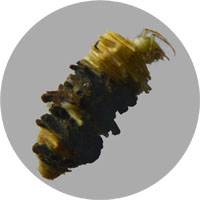
Lateral Connectivity in River Floodplains: From Invertebrate Community Prediction to Local Food Web Transfer of Contaminants
- Funding : University of Geneva
- UniGe Responsibles : Dr Emmanuel Castella, Prof. Vera Slaveykova
- PhD student : Mr. Pierre Marle
- Partners : Dr. Hervé Piégay & Dr. Jérémie Riquier, MR CNRS 5600 EVS, University of Lyon 3, France, Dr. Jean-Michel Olivier UMR CNRS 5023 LEHNA, University of Lyon 1, France
Assessing Metal Bioavailability Through Transcriptome Response in Aquatic Primary Producers
- This project studies the relationship between toxic metal bioavailability and expression of genes in two representative aquatic primary producers: a rooted macrophyte and a green microalga, representing the aquatic plants and the phytoplankton typically found in the benthic environment and the water column.
- Funding : Swiss National Science Foundation
- UniGe Responsibles : Prof. Vera Slaveykova and Dr Claudia Cosio,
- PhD student : Mrs Rebecca Beauvais-Flück
- Partners : Genomic platform iG3, University of Geneva
Association of Uranium with Organic Matter- and Iron-bearing Colloids in Wetland Environments “UMIC”
- The project aims to improve the mechanistic understanding of the role of (Fe-)NOM colloids on U(IV) dissemination with specific emphasis on the composition, size, shape, phases of natural organic matter- and Iron-bearing colloids in wetland environments. The UniGe contributes to the characterization of the size and molar mass distributions of natural organic matter (NOM), iron colloids and associated uranium by flow field-flow fractionation-multi detection system.
- Funding : Horizon 2020 MARIE SKŁODOWSKA-CURIE Individual Fellowships
- Principle Investigator: Dr Gabrille Dublet
- Partners: Profs. Rizlan Bernier-Latmani (EPFL) and Prof. Vera Slaveykova
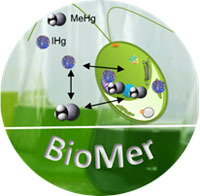
Bioavailability of Mercury Species to Phytoplankton
- The project studies Hg species availability to model phytoplankton specie, unicellular green alga Chlamydomonas reinhardtii, sub-cellular effects at transcriptomic and physiology level and role of various environmental factors.
- Funding : Swiss National Science Foundation
- UniGe Responsible : Prof. Vera Slaveykova
- Collaborators : Dr. Nicole Regier, Mr. Killian Kavanagh, Mme Elodie Moulin
- Partners : Genomic platform iG3, University of Geneva
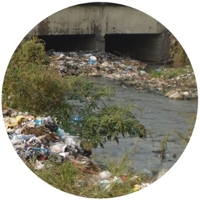
- Our laboratory is involved in the assesses the anthropogenic influences associated microbiological and toxic metal contamination of the aquatic environment receiving systems, irrigation water and crops, as well as drinking water supplies.
- Funding : Swiss National Science Foundation
- UniGe Responsibles : Dr John Pote, Prof. Vera Slaveykova and Honorary Prof. Walter Wildi
- PhD student : Amandine Laffite (University of Geneva)
- Partners : University of Kinshasa and UPN (Congo)
Probing Contaminant Bioavailability by Multi-endpoint Lab-on-Chip Whole Cell Arrays
- The project aims at developing and testing a multi-endpoint lab-on-chip cell array to enable the in-situ determination of the biological availability and effects of various contaminants to aquatic microorganisms in complex environment.
- UniGe Responsible : Prof. Vera Slaveykova
- Collaborators : Mr. Killian Kavanagh, Dr. Coralie Siebman (Suscillon)
- Partner : Prof. O. Velev, NC State University, USA
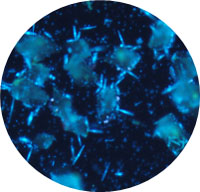
Response of Natural Biofilms to Dynamic Fluctuation of Micropollutants
- The project studies biofilm accumulation and composition as bioindicators of toxic metals exposure in contaminated sites.
- Funding : Subside Tremplin, University of Geneva
- Principle Investigator : Dr Séverine Le Faucheur
- Partners : Prof. Vera Slaveykova, University of Geneva, Prof. Marc Amyot, Université de Montréal, Canada; Dr David Amouroux, CNRS-Université de Pau et des Pays de l'Adour, France
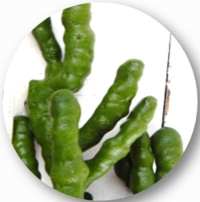
Spatial and Temporal Distribution of Vital and Toxic Trace Elements in Endemic Sponges of Lake Baikal
- This project studies the distribution of vital and toxic trace elements including Hg within endemic sponge and explores the relationships between the changes in the elemental composition and the appearance of sponge damage or illnesses.
- UniGe Responsibles : Prof. Vera Slaveykova, Dr Jean-Luc Loizeau
- Collaborator : Mariapaola Ambrosone
- Partners : Prof. Matsumi Yamamuro (Tokyo University, Japon) and Prof. Oleg Timoshkin (Institute of Limnology, RAN, Irkutsk, Russia).
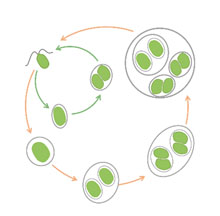
United We Stand Divided We Fall: Chlamydomonas reinhardtii Strategy to Endure Micropollutant Toxicity
- The project aims to elucidate the mechanisms of palmelloid colony formation as a cellular strategy to avoid micropollutant toxicity. Despite the deep knowledge of Chlamydomonas reinhardtii cell biology the mechanisms that drive the transition from unicellular to colonial lifestyle are currently unclear and the biological function of palmelloid formation is still in question.
- Funding : Swiss National Science Foundation –Marie Heim-Vögtlin
- Principle Investigator : Dr Giulia Cheloni
- Partners : Prof. Vera Slaveykova and Prof. Michel Goldschmidt-Clermont, Department of Molecular Biology, University of Geneva
Water quality assessment of the former industrial sites of “Villard Le Planay” and “Pomblière Saint Marcel“
- This project assesses the environmental quality of water and sediments in the former industrial site and the discharges of the Bozel valley as well as the six discharges of the Tarentaise valley.
- Funding : RioTinto
- UniGe Responsible: Dr Séverine Le Faucheur
- Collaborator : Mrs Carmen Moinecourt
Non-invasive continuous monitoring of the interaction between nanoparticles and aquatic microorganisms (Mlle Nadia von Moos, en collaboration avec le Prof. O. Martin et le Dr P. Bowen, EPFL)
NanoUniCell, A comparative study of the effects of metal and semiconductor nanoparticles on two unicellular eukaryotic organisms (Dr. M. Mortimer, Prof. V. Slaveykova, in collaboration with Dr. A. Kahru, National Institute of Chemical Physics and Biophysics, Estonia)
Mercury threat in industrially impacted surface water bodies in Romania – integrated approach (MERCURO) (Mlle Perrine Dranguet, Drs. C.Cosio, S. Le Faucheur, J.L. Loizeau, Prof. V. Slaveykova, in collaboration with GEOECOMAR, Romania)
Biodisponibilité et toxicité des mélanges de métaux envers les algues d’eau douce (Dr S. Le Faucheur)
Metal Bioavailability to aquatic photosynthetic organisms in Changing Environment (BioChEn) (Mlle G. Cheloni, Dr C. Cosio, Prof. V. Slaveykova)
Ecotoxicologie et biodiversité aquatique dans un système rivière-plaine alluviale (Mme D. Hug Peter, en collaboration avec le Dr E. Castella, Institut F.-A.Forel).
Micropollutant availability and effects to phytoplankton in the Venice lagoon (M. M. Wildi, Mlle C. Pestrimaux, Dr S. Le Faucheur, Prof. V. Slaveykova, in collaboration with Dr. R. Zonta, ISMAR, Italy)
Etude du modèle végétal aquatique Elodea nuttallii pour l’évaluation du risque des métaux et la biosurveillance du mercure (Dr N. Regier and Dr C. Cosio )
Sino-Swiss project on Hg biogeochemical cycling in Baihua Reservoir, Guizhou, China (Janusz Dominik, Bian Liu)
Mercury speciation and bioavailability to green algae (Dr Séverine Le Faucheur, Prof. Vera Slaveykova)
Evaluation des impacts environnementaux sur les systèmes aquatiques par des approches de génétique bactérienne et physicochimiques dans les pays en développement: Cas du sud de l’Inde et de l’Afrique Sub-saharienne (Mme Amandine Laffite, Dr John Poté, Prof. Vera Slaveykova)

